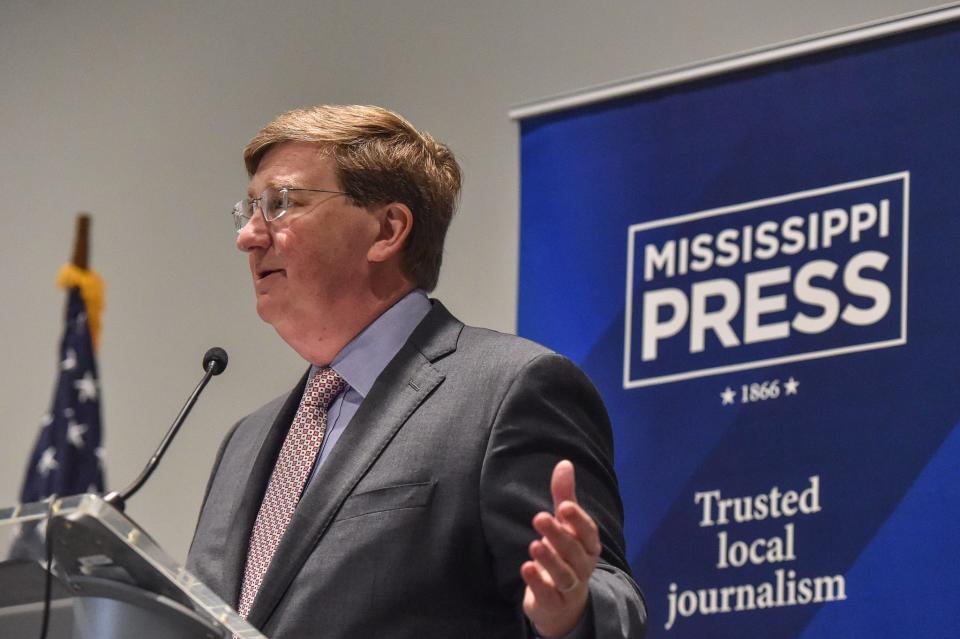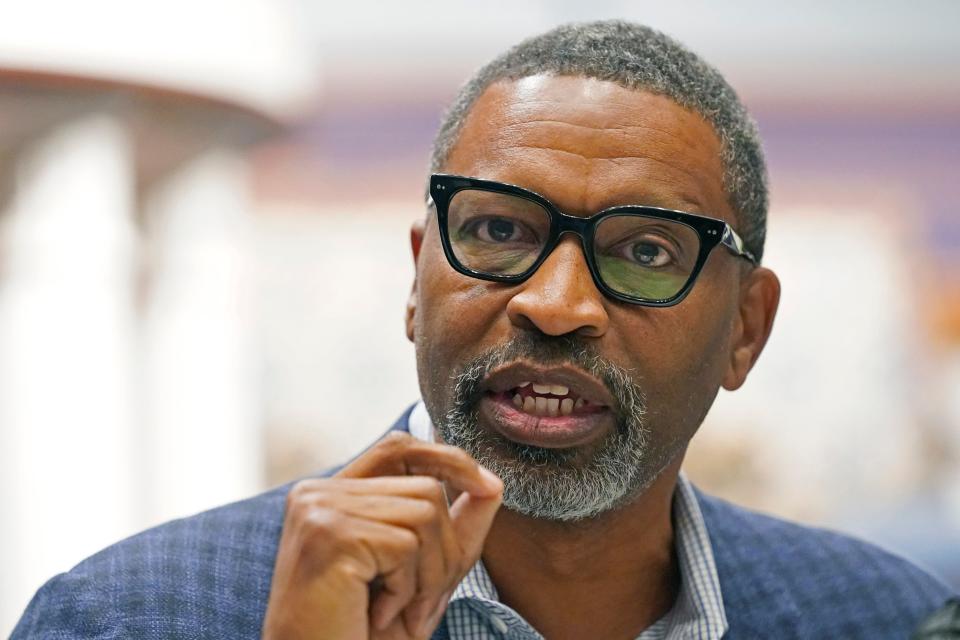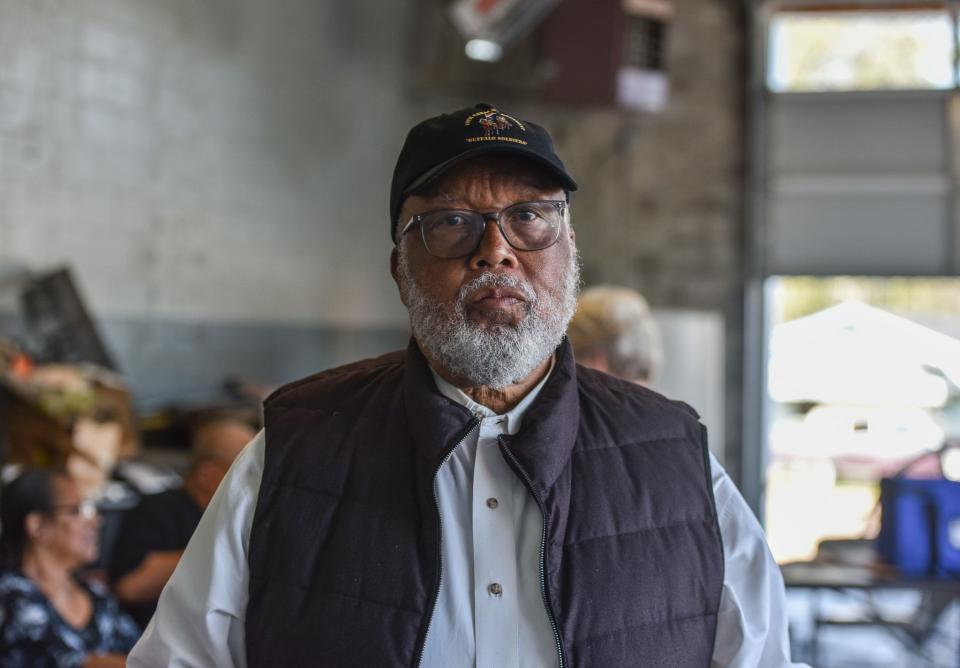Mississippians react to SCOTUS strike down of affirmative action in college admissions
- Oops!Something went wrong.Please try again later.
- Oops!Something went wrong.Please try again later.
- Oops!Something went wrong.Please try again later.
The United States Supreme Court decision to outlaw using certain racial factors in college admissions, also known as affirmative action, led to a range of reactions from prominent Mississippians.
While some of the state's conservative leaders praised Chief Justice John Roberts' majority decision as one that prevents discrimination, others said it sets back decades of work on increasing diversity within the nation's schools.
The case challenged the admissions policies of two of the nation's most exclusive higher education institutions, Harvard University and the University of North Carolina at Chapel Hill. Affirmative action policies are especially common at universities with low acceptance rates. Harvard admitted just 3.24% of applicants in its most recent class.
Most schools in Mississippi accept a majority of students who apply, but Mississippi residents also often apply to those elite colleges and universities. According to the school, 17.8% of admitted Harvard students this year came from states in the South. That ranked second amongst all U.S. regions, behind only the Mid-Atlantic.
How Mississippi figures reacted to the decision

Republican Gov. Tate Reeves said that race should not play a role in college admissions, specifically citing Justice Clarence Thomas. Thomas wrote his own concurrence to Roberts' decision, which included sharp criticism of Justice Ketanji Brown Jackson's dissent.
"Individuals are the sum of their unique experiences, challenges, and accomplishments. What matters is not the barriers they face, but how they choose to confront them. And their race is not to blame for everything — good or bad — that happens in their lives," Reeves said in a statement Thursday. "Justice Thomas got it right. Race-based college admissions are wrong."
Reeves said that he would ensure that Mississippi colleges and universities enact the decision, if they are not already in compliance.
"We will enthusiastically work to ensure that our universities across the state comply with both the letter and spirit of this decision. Our academic institutions will be stronger and more fair because of it," Reeves said.
Derrick Johnson

National President of the NAACP, and Jackson resident, Derrick Johnson criticized the decision a justice who concurred for allegedly benefiting from affirmative action only to advocate for its abolition. Thomas, who is Black, attended Yale Law School.
"The worst thing about affirmative action is that it created a Clarence Thomas, who benefited from the program and now is in a position where he's going to deny many young African American talented individuals an opportunity," Johnson said on MSNBC Thursday.
Johnson said that historically Black people have had a harder time being admitted to colleges and universities than their white counterparts, and that affirmative action has been an attempt to address that.
Roger Wicker

Mississippi's senior U.S. senator, Republican Roger Wicker, celebrated the decision in a Twitter post Thursday.
"Today the Supreme Court affirmed that merit should be the focus of college admissions nationwide," Wicker tweeted. "This decision brings us one step closer to the ideals of our founding."
Bennie Thompson

Bennie Thompson — Mississippi's only Black, and only Democratic, member of Congress — issued a statement Thursday saying he is "deeply disappointed" by the decision.
"In many cases, college admissions consideration of a student's race is an important factor in ensuring that historically disadvantaged students can access the same educational opportunities available to their more privileged peers," Thompson said. "Without this factor, our colleges and universities are in danger of becoming more homogeneous and not reflective of the true diversity that exists in our society. We must find ways to promote educational fairness and equity while upholding the importance of an inclusive society.”
Robert Luckett

Robert Luckett, professor of history and director of the Margaret Walker and Council of Federated Organizations (COFO) Civil Rights Education centers at Jackson State University, said universities may be able to work around new restrictions.
"Those colleges and universities truly committed to diversity will find ways to abide by the decision that enables them to continue promoting diversity on their campus," Luckett said in a statement.
Luckett added that universities may have seen the decision coming.
"The Supreme Court has traditionally been the most conservative reactionary branch of all the federal branches of the government. Nothing about this decision is a true surprise. It was only a matter of when," Luckett said. "This shouldn't be a shock given the makeup of the current court, and it would be incumbent upon colleges and universities to think through their admissions criteria that enable them to capture the diversity that they claim is still important to them."
This article originally appeared on Mississippi Clarion Ledger: MS figures reactions on affirmative action ban from U.S. Supreme Court

